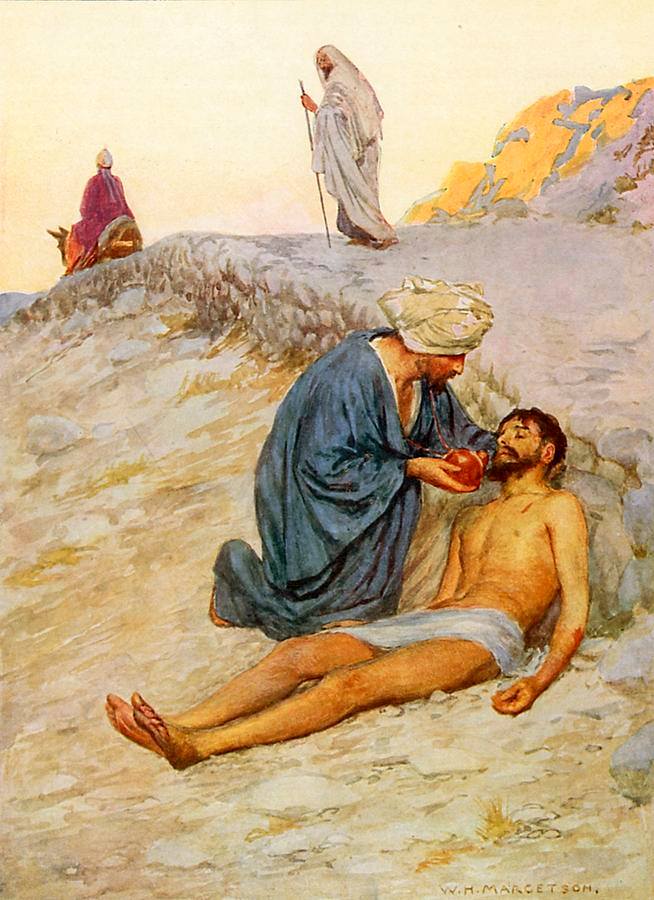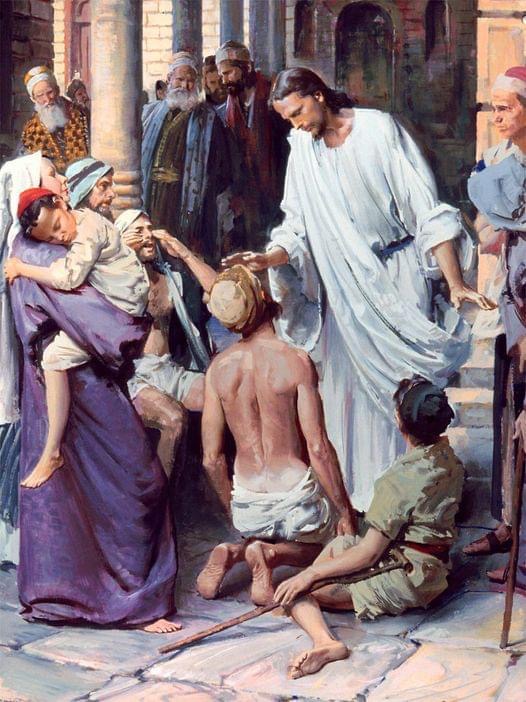“And many people will go and say, Come, let us go up to the mountain of the Lord, toward the house of the God of Jacob, and he will teach us about his ways, and we will walk in his paths; for out of Zion shall go forth the law, and the word of the Lord out of Jerusalem.” Isaiah 2:3.
The Old Testament Scriptures were Israel's teaching book. When a lawyer approached Christ with the question “Teacher, what must I do to inherit eternal life?” the Savior replied: “What is written in the law? How do you read?” And the lawyer answered and said, “You shall love the Lord your God with all your heart, and with all your soul, and with all your strength, and with all your mind; and your neighbor as yourself.” Christ then said: “You have answered correctly; do this and you will live” (Luke 10:25-28).
If there were no other text in the Bible, this statement carries enough light, knowledge and assurance for every soul. The lawyer had answered his own question, but, wanting to justify himself, he asked Jesus: “Who is my neighbor?” (verse 29). So, through the parable of the Good Samaritan, Christ showed who our neighbor is and gave us an example of the love we should show towards those who suffer and are in need. “A certain man was going down from Jerusalem to Jericho, and fell among robbers, who stripped him, and struck him, and departed, leaving him almost dead.” (Verse 30). The priest and the Levite, whose duty it was to help the stranger, passed by on the other side. But a certain Samaritan, being on a journey, came to him; and when he saw him, he had compassion on him. (Verse 33).
At the conclusion of the narrative, Christ asked the lawyer: “Which of these three do you think became a neighbor to the one who fell into the hands of thieves?” And he replied: “He who showed mercy to him.” Then Jesus said to him: “Go and do likewise” (verses 36, 37).
There are practical lessons in the Word of God. This Word teaches living and holy principles that lead men to treat others as they would like to be treated, principles that are to be applied in daily life here and carried into the life to come. The altar and the plow represent experiences for all those who seek eternal life. We know very little about the greatness of God's love and compassion.

We must allow students to expand the faculties of their minds so that they can understand chapters like the forty-fifth of Isaiah, which should be presented in schools as valuable studies. They will be more profitable than novels or fables. Why are our schools so dependent on books that say so little about the city we claim to be seeking, whose Builder and Creator is God?
Heaven is our home. Our citizenship is on high, and our lives should not be dedicated to a world that will soon be destroyed. We need the Word of God revealed in living characters. What pure and excellent language is found in the Word of God! What high and noble principles!

The parable of the Good Samaritan teaches fundamental principles about love for others and compassion. We can apply these principles to our daily lives in several ways:
1. Have empathy: Just as the Samaritan felt sorry for the injured man, we must develop empathy for others. This means putting yourself in someone else's shoes, trying to understand their difficulties and needs, and acting compassionately.

2. Helping those in need: The Good Samaritan not only felt compassion, but also acted to help the injured man. Likewise, we must be willing to help those around us who are in need. This may include offering practical help, such as donating food, clothing, money, or even offering emotional support and encouragement.
3. Overcoming prejudices and barriers: At the time the parable was told, there was tension between Jews and Samaritans. However, the Good Samaritan overcame these barriers and helped a Jew in need. Likewise, we must be willing to overcome prejudices, cultural and social differences to help those in need, regardless of their origin, race or religion.
4. Be diligent and responsible: The Good Samaritan cared for the injured man until he fully recovered. This teaches us the importance of being diligent and responsible in helping others. We must be willing to commit and invest time, resources and effort to ensure that those we help are fully restored.
5. Be an example of love: The parable reminds us that our love for others must be practical and tangible. We should seek to be living examples of the love of Christ, showing kindness, compassion, generosity, and forgiveness to others.
As we apply these principles in our daily lives, we will follow Christ's example and fulfill the commandment to love our neighbors as ourselves. This will empower us to make a positive difference in the lives of those around us and honor God through our actions.
















2 Responses
Perfeito demais …😍…Uma Boa reflexão para a geração sem amor e empatia que pensam q fazer apenas caridade tem seu lugar no céu …🙏🏼
Perfeito…😍…Uma bela reflexão para muita gente enumerar prioridades em suas vidas…🙏🏼..Que Deus esteja na vida de todos como alicerce para que busquem intimidade e não religiosidade …🙌🏼